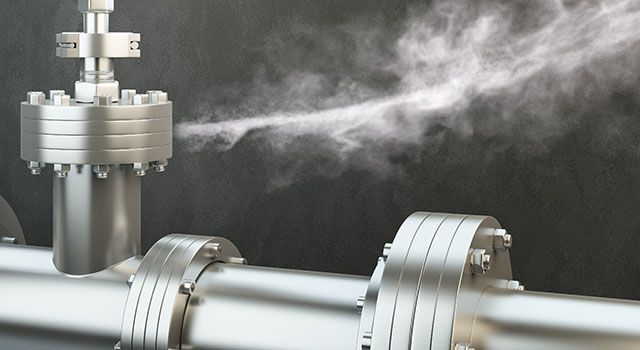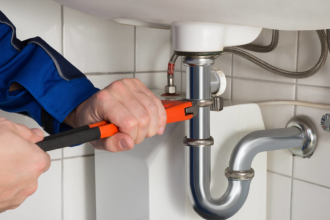Because of their severe health and safety dangers, gas leaks are an urgent and vital threat requiring quick action. One of the main concerns related to gas leaks is carbon monoxide poisoning, which may result in fatal symptoms, including headaches and dizziness if left untreated. Moreover, gas leaks considerably increase the possibility of fires and explosions, destroying houses and jeopardizing lives. These risks highlight how crucial prompt action and emergency gas leak fixes are. If you respond promptly to gas leaks, you can save your family and property from possible danger. Being proactive may lessen the risks and avoid the disastrous effects of untreated gas leaks.
Understanding the Dangers of Gas Leaks
Gas leaks are dangerous because they pose potential risks to health and safety, including the threat of carbon monoxide poisoning. Carbon monoxide is a dangerous gas that can cause serious health problems and even death with prolonged exposure. Also, gas leaks can potentially cause fires and explosions, endangering lives and infrastructure. With these serious risks at hand, it is crucial to look for emergency gas leak repairs to safeguard the safety and health of all household members. The quicker you deal with a gas leak, the faster you can reduce these hazards and safeguard your loved ones and belongings. Taking immediate action can prevent the severe outcomes of untreated gas leaks.
Health Risks Associated with Gas Leaks
Exposure to natural gas can have a range of adverse health effects. Short-term exposure to leaking gas can cause symptoms such as headaches, fatigue, nausea, and respiratory problems. For vulnerable populations, such as children, the elderly, and individuals with pre-existing health conditions, these symptoms can be even more severe. Long-term exposure to gas leaks, particularly in enclosed spaces, can lead to chronic respiratory diseases, cardiovascular issues, and neurological problems. Research from the National Institutes of Health emphasizes the importance of early detection and intervention to prevent these long-term health consequences.
Environmental Impact of Gas Leaks
Apart from the immediate health risks, gas leaks have adverse environmental effects. The primary ingredient of natural gas and a potent greenhouse gas is methane. Because methane traps heat in the atmosphere approximately 25 times more efficiently than carbon dioxide, it plays a significant role in climate change and global warming. Uncontrolled gas leaks have the potential to release large volumes of methane into the atmosphere, which can worsen environmental degradation. Quick fixes for gas leaks can help you reduce your carbon footprint, save the environment, and create a more sustainable future for the planet.
Signs of a Gas Leak
Identifying the signs of a gas leak early can prevent potentially disastrous outcomes. Homeowners should be vigilant and aware of common indicators such as:
- A distinct hissing or whistling sound near gas line connections may indicate a gas escape.
- Natural gas is sprayed with a strong smell, such as sulfur or rotten eggs, as a safety measure to detect leaks.
- Dead or dying vegetation around the gas line area may signal an underground leak affecting plant life.
- Physical symptoms like headaches, dizziness, or nausea occur when entering the home and subside when outside, suggesting possible gas exposure.
Understanding these signs and taking action can save lives and prevent significant property damage.
What to Do if You Suspect a Gas Leak
If you discover a gas leak, take immediate action to ensure everyone’s safety. Proceed out of the location swiftly and silently. Avoid using any power or open flames. Avoid using phones, turning on or off lights, or starting autos near the leak. Call emergency services and your gas provider from a safe location to report the spill. Carefully follow their instructions to ensure everyone’s safety and appropriate property protection. Remember to telephone from a safe location to report the leak to the gas company and emergency services.
Preventive Measures to Avoid Gas Leaks
Homeowners should arrange for licensed experts to conduct routine inspections of their gas lines and appliances to prevent gas leaks. Early alerts of gas leaks can be achieved by installing carbon monoxide detectors in sleeping areas and rooms with gas-powered equipment. Gas accumulation in gas-emitting places can be avoided with adequate ventilation. Always call your local utility company to get gas lines identified, and use caution when performing excavation work to prevent damage to gas lines. By taking these precautions, you may greatly lower the chance of gas leaks and protect your family’s safety as well as the safety of your house.
Legal and Insurance Implications
Ignoring a gas leak can also have legal and insurance repercussions. Failure to address a known gas leak can lead to potential liability issues, as homeowners may be held responsible for any harm caused by their negligence. Additionally, many homeowners’ insurance policies may be voided if it is found that the homeowner neglected to take appropriate action to address a gas leak. It’s essential to adhere to safety protocols and report any leaks promptly to avoid legal complications and ensure continued insurance coverage.













